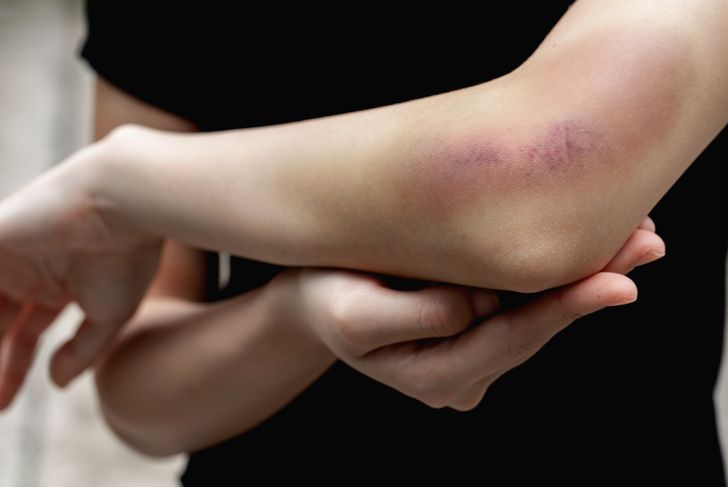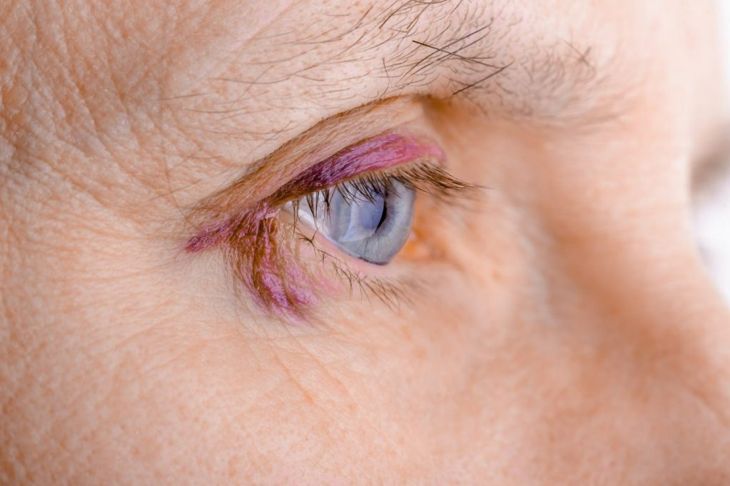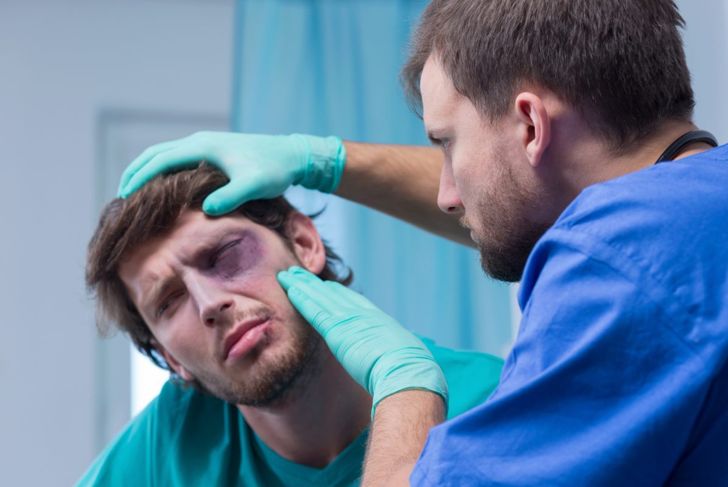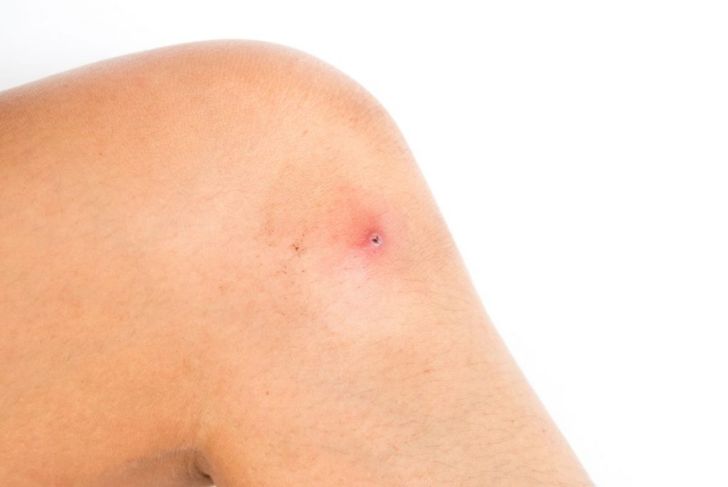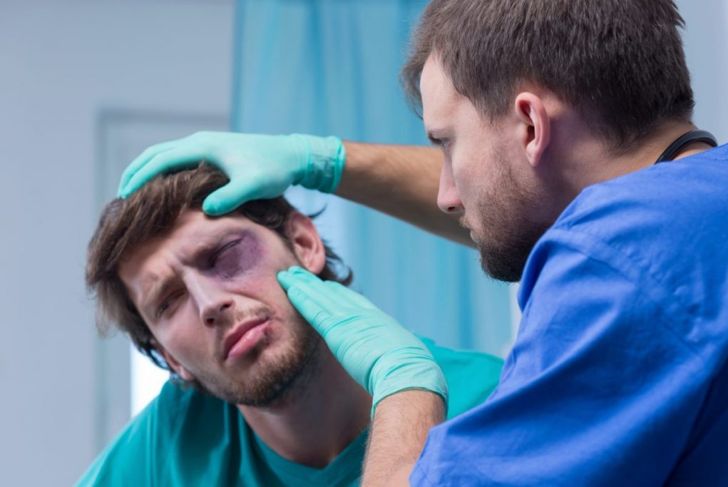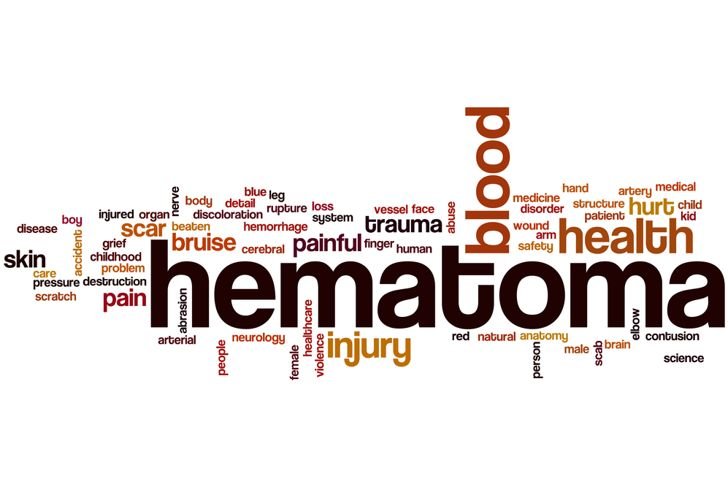Ecchymosis describes the ordinary bruise. In most cases, ecchymosis crops up when a broken capillary leaks blood into nearby tissues causing skin discoloration. On average, ecchymosis will take up to three or four weeks to heal completely. This condition can be caused by disease, minor trauma, and a few assorted other conditions.
Ecchymosis Symptoms
Skin discoloration as a result of burst blood capillaries leading to blood leakage into the skin is the primary symptom of ecchymosis. The affected area is sensitive and can sometimes be painful when touched. The discolored patch will progressively change colors from red through bluish, brown, green to yellow and finally disappear completely as the blood beneath the skin is reabsorbed by the body. These bruises can affect any part of the body but is more common on the legs and arms because these extremities are more susceptible to injury. It can also occur on the skin surrounding the eyes, which are surrounded by thin skin that bruises easily. Ecchymosis tends to be more pronounced in older adults, mainly because as the body ages, the skin becomes thinner and this increases the susceptibility of blood vessels to burst, resulting in frequent bruising.
Ecchymosis Causes
In most cases, ecchymosis occurs following a fall, blow, or hard bump. When this happens, blood vessels may burst and start leaking blood underneath the skin, resulting in a bruise. Some medications, such as blood thinners, dietary supplements, and antibiotics, are linked to burst blood capillaries and bruising. People who find bruises on their bodies on a regular basis but can’t seem to recall getting injured should see a doctor as soon as possible — this can be a sign of an underlying medical condition. There are many medical conditions that may cause someone to bruise easily, including various bleeding disorders. For this reason, a person should visit the doctor if he or she sees large bruises on a regular basis, can’t pinpoint the reason for a bruise, has a family has a history of bruising easily, or begins to bruise more easily than before.
Ecchymosis Diagnosis
A medical practitioner can easily diagnose ecchymosis by looking at the site. A doctor may recommend an x-ray if he or she suspects a larger injury, to rule out or diagnose any broken bones or other more serious ailments. If the doctor cannot identify the exact cause of a bruise, he or she may analyze the patient’s platelet levels or perform a coagulation test to establish the blood’s ability to clot.
Ecchymosis Treatment
Most of the time, these bruises don’t require treatment as they heal on their own. The healing time varies from one person to another depending on age, the cause of injury, the severity of the injury, and other factors. Most options for speeding healing are home remedies that do not require medical intervention. Individuals can apply ice packs to the injured area within the first forty-eight hours, avoid overworking the area, keep the injured body part above the heart and take anti-inflammatory medicines to minimize swelling.
Ecchymosis Prevention
It is almost impossible to evade bruising, but people can take measures to reduce the risk:
Always wear protective gear when participating in sports and other contact activities;
Avoid leaving clutter on stairways and walkways
Consider rearranging furniture to minimize the chances of bumps
Turn on lights when moving from room to room in the dark
Conditions Related to Ecchymosis
Bleeding into the skin occurs due to conditions such as purpura and petechiae, as well. Unlike ecchymosis, both purpura and petechiae are as a result of infections or problems associated with blood clotting, and require different methods of treatment and investigation.
When is Ecchymosis Serious?
Ecchymosis does not generally require medical attention since it can heal on its own. The healing duration of ecchymosis may vary from one individual to another and is greatly influenced by age, the nature of injury, and other factors. If you notice sudden, unusual bruising or cannot explain your bruises, speak to a doctor. Regular and unexplained bruising may be a sign of an underlying medical condition that requires medical attention.
Ecchymosis vs. Hematoma
Hematomas are more serious than most bruises or standard ecchymosis, and are often the result of a severe injury. One way to differentiate between the two is by appearance. Bruises caused by severe injuries (hematomas) are raised on the skin, whereas ecchymosis bruises are flat. There are different types of hematoma, including subdural, hepatic, subungual, and spinal. Primary causes include bone fractures, blood clots, and blood cancer, and may be accompanied by symptoms such as headache, more wide-spread pain, and loss of bladder control, depending on where the hematoma is located.

 Home
Home Health
Health Diet & Nutrition
Diet & Nutrition Living Well
Living Well More
More